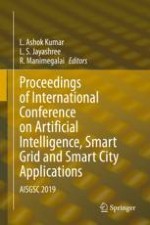2020 | OriginalPaper | Buchkapitel
84. Relevancy and Similarity Aware Drug Comment Classification Framework on Social Media Drug Posts
verfasst von : D. Krithika Renuka, B. Rosiline Jeetha
Erschienen in: Proceedings of International Conference on Artificial Intelligence, Smart Grid and Smart City Applications
Aktivieren Sie unsere intelligente Suche, um passende Fachinhalte oder Patente zu finden.
Wählen Sie Textabschnitte aus um mit Künstlicher Intelligenz passenden Patente zu finden. powered by
Markieren Sie Textabschnitte, um KI-gestützt weitere passende Inhalte zu finden. powered by
